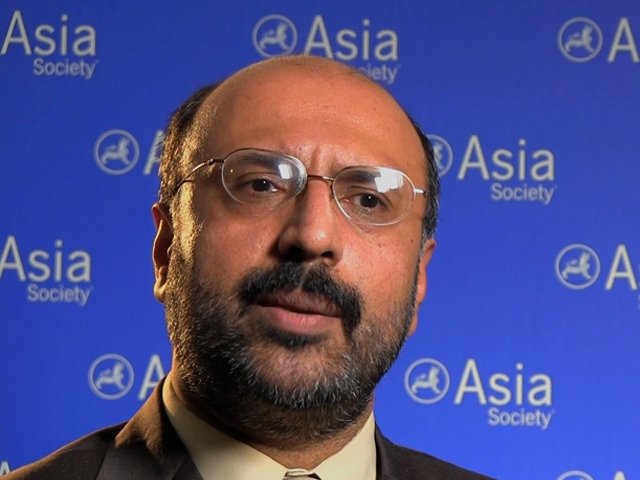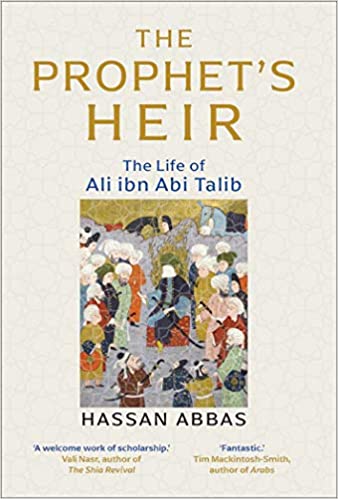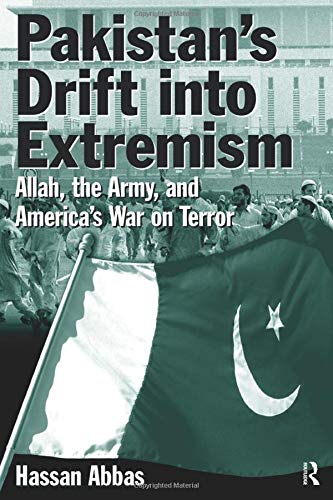
Dr. Hassan Abbas is Professor of International Security Studies & Chair of the Department of Regional and Analytical Studies at the National Defense University in Washington DC. He is also a senior advisor and Bernard Schwartz Fellow at the Asia Society in New York working on the U.S. relations with South and Central Asia. Dr. Abbas held the Distinguished Quaid-i-Azam Chair at the South Asia Institute at Columbia University from 2009-11. Previous to that he was a Senior Advisor at the Belfer Center for Science and International Affairs at the Kennedy School of Government, Harvard University, after having been a Research Fellow at the Belfer Center from 2005 to 2009. He is also a non-resident Fellow at the Institute for Social Policy and Understanding (ISPU), Michigan, and an Associate of the Pakistan Security Research Unit (PSRU), University of Bradford, in the United Kingdom. He received his Ph.D. from the Fletcher School of Law and Diplomacy, Tufts University, and an LL.M. in International Law from Nottingham University, United Kingdom, where he was a Britannia Chevening Scholar (1999). Dr. Abbas also remained a fellow at the Islamic Legal Studies Program at Harvard Law School (2002-2003) and as a visiting scholar at the Harvard Law School’s Program on Negotiation (2003-2004).
His research interests are politics and security issues in South West Asia; and relations between Muslims and the West. His recent publication include ‘Stabilizing Pakistan Through Police Reforms’ and ‘Pakistan 2020: A Vision for Building a Better Future’ both available at asiasociety.org. His book, Pakistan’s Drift into Extremism: Allah, the Army and America’s War on Terror (M.E. Sharpe) has been on bestseller lists in India and Pakistan and was widely reviewed internationally, including by the New York Times, the Boston Globe, Far Eastern Economic Review, The Hindu, and Dawn. He has also appeared as an analyst on CNN, MSNBC, C-Span, Al-Jazeera, and PBS, and as a political commentator on VOA and BBC. He runs WATANDOST, which is a blog on Pakistan and its neighbors’ related affairs.
The Taliban Revival
Great book by a great author on the Taliban. A must for anyone who wants to understand more about the issues in this part of the world and how it affects the U.S. It also reveals the failures of the U.S. on many levels which is also necessary for understanding this region and its people.
- Dan Wilson
More info →Pakistan’s Drift into Extremism: Allah, the Army, and America’s War on Terror
If you have to read just one book on Pakistan, this is it. Extremely well written and powerful - I have been teaching South Asian history for a decade but haven't come across a book on the country that is so clear in its perspective, so bold and most importantly written by someone who is not only a scholar but one who witnessed the scene firsthand. Its certainly a important contribution to the field.
- Chris
More info →Pakistan’s Nuclear Bomb: A Story of Defiance, Deterrence and Deviance
This book provides a comprehensive account of the mysterious story of Pakistan's attempt to develop nuclear weapons in the face of severe odds. Hassan Abbas profiles the politicians and scientists involved, and the role of China and Saudi Arabia in supporting Pakistan's nuclear infrastructure.
Abbas also unravels the motivations behind the Pakistani nuclear physicist Dr A.Q. Khan's involvement in nuclear proliferation in Iran, Libya and North Korea, drawing on extensive interviews. He argues that the origins and evolution of the Khan network were tied to the domestic and international
political motivations underlying Pakistan's nuclear weapons project, and that project's organization, oversight and management. The ties between the making of the Pakistani bomb and the proliferation that then ensued have not yet been fully illuminated or understood, and this book's disclosures have
important lessons. The Khan proliferation breach remains of vital importance for understanding how to stop such transfers of sensitive technology in future.
Finally, the book examines the prospects for nuclear safety in Pakistan, considering both Pakistan's nuclear control infrastructure and the threat posed by the Taliban and other extremist groups to the country's nuclear assets.
More info →







